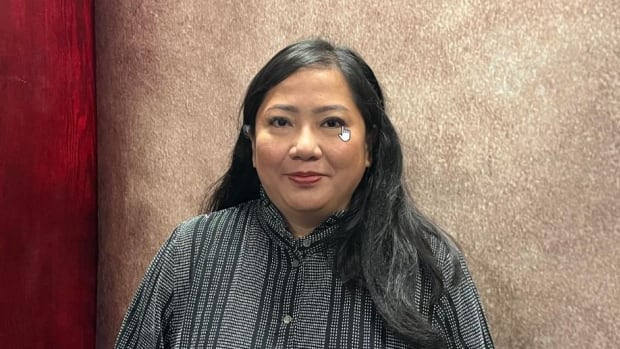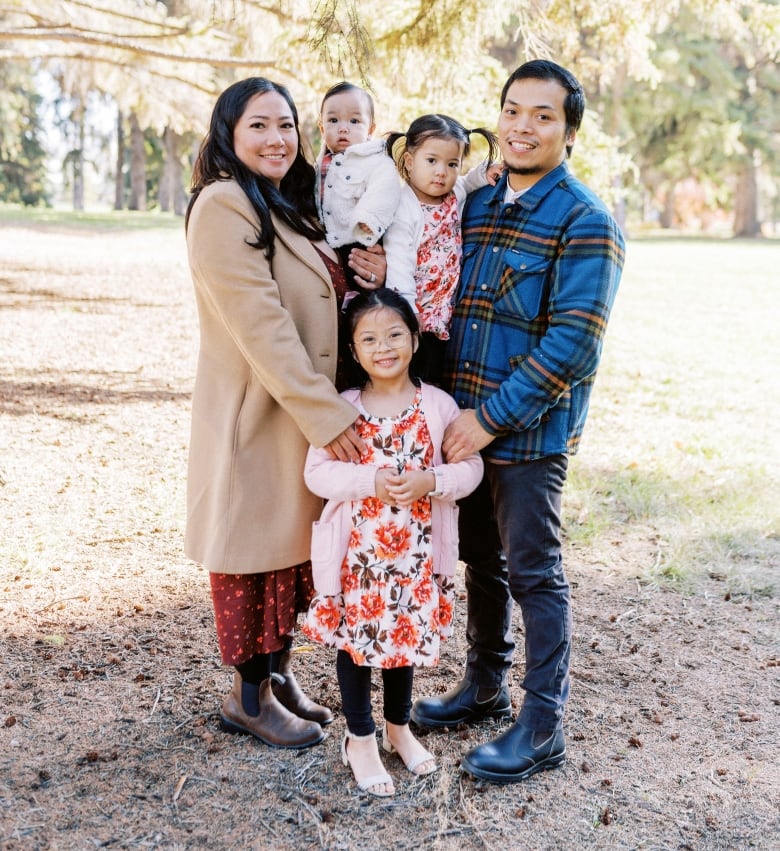
This First Person article is the experience of Julia Embuscado Daantos, who lives in Edmonton. For more information about CBC’s First Person stories, please see the FAQ.
“Say that again?”
I still remember the way the older man stared at me from across the fast food counter I was working while a lineup forming behind him.
I asked him again what sauce he wanted with his chicken strips, even showing him pictures from the menu, but he continued staring at me as though he couldn’t understand me. It made me feel like I was different and that it was clear I was not from the same place as he was.
That’s when my co-worker intervened and asked the man the same question. Suddenly, the customer understood.
I can’t be sure what that customer was thinking, but I felt like he chose to not understand me because he saw me as an immigrant whose English was different. And this same pattern repeated itself more than once during my time working in fast food service.
Saskatoon Morning7:42“I’m fully fluent in English, but my accent still feels like a barrier to acceptance”
Host Theresa Kliem speaks with Julia Daantos about how being from the Philippines, she has faced discrimination for how she speaks English.
Moving to Canada from the Philippines was an easy choice for me. English has always been a part of my identity. It was the language I used throughout my studies. For leisure, I read books in English and watch American TV shows and movies. I even pray in English. When I get mad, I speak English. In so many ways, I feel that English is native to me, but it’s still not enough for me to be considered a native English speaker among some Canadians.
“You bet ya” — the first time I ever heard this was when I asked a lady for something that I needed for our first apartment in Saskatoon. I thought, “Hmm, I’m pretty sure I am not placing a bet, I just asked a question.”
As a substitute teacher in Saskatoon, I ran into these moments more often. Students will say, “I need to write a test” and not “take a test”. For me, teachers “write a test” and students “take it.” I tell students they can use “coloured pencils” while educational assistants clarify that these are called “pencil crayons” here.
We asked CBC staff to talk to us about what it means to speak English with an accent, how it’s impacted their lives, work and view on being in Canada.
“When does one consider themself a native speaker of English?” I recall one university professor asking my class, when I was studying for my master’s.
My classmate from Mexico had whispered to me, “You, Julia, you are a native speaker of English.”
I thought to myself then, “No, I am not. Yes, English is my home country’s second language — one of our official languages even — but I can never be a native speaker of English.”
Clearly, that incident working in fast food was at the back of my mind.

Most times, I can laugh these kinds of encounters off. I have other problems besides worrying about racist people.
Still, I can’t help but fear my accent could affect my chances to get permanent teaching positions. This is a reality immigrants like myself face everyday whenever we search for a workplace where we will be truly accepted and valued.
When I check into a school, some office co-ordinators or teachers assume that I’m an educational assistant.
When I say, “No, I’m the teacher,” I can see the look of surprise cross their face.
Unlike some high school children who might mock how I sound, the younger kids I teach are more open and accepting. They see beyond my face and my accent in a way that I wish others would as well.
English arrived in the Philippines through American influences, becoming an official language and a way for our government to promote our English-speaking skills to export labour.
In the process of learning English, it has become ours — comfortably ours with all its uniqueness, just like how Canadian English has its unique phrases such as eh, toonies and double doubles. I wish that people could see and understand that while many of us may speak English differently than people raised in Canada, we are all communicating in one language.
It’s disappointing that some can’t hear anything beyond my accent. But my accent is a part of what makes me unique and I wouldn’t change it for anyone.
Do you have a compelling personal story that can bring understanding or help others? We want to hear from you. Here’s more info on how to pitch to us.
